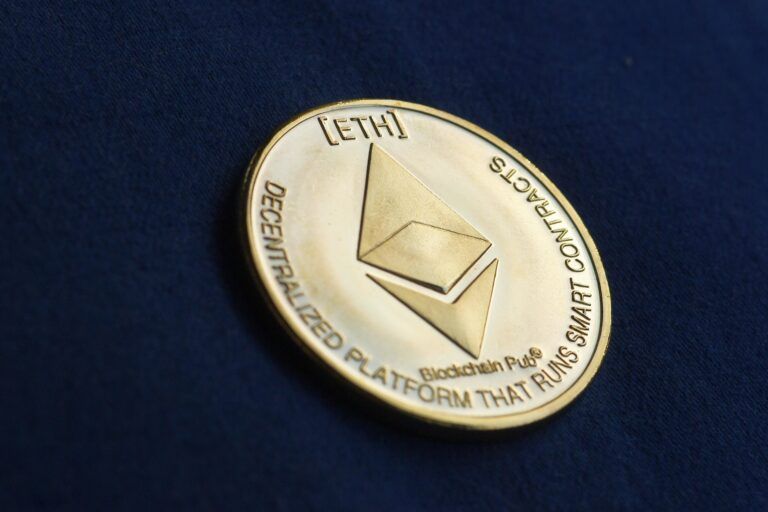In a post on social media platform X, dated 11 March 2024, Jake Chervinsky, Chief Legal Officer at Variant Investments, shared a candid analysis regarding the prospects of an Ethereum (ETH) Exchange-Traded Fund (ETF) being approved by the U.S. Securities and Exchange Commission (SEC).
This comes after the watershed moment on 10 January 2024, when the SEC green-lit 11 spot Bitcoin ETFs, sparking speculation and hope within the crypto community that an ETH ETF might follow suit by May 2024. Chervinsky, with over five years of experience advocating for Ethereum, expressed a nuanced, albeit bearish stance on the matter, underpinned by his extensive understanding of the regulatory landscape and political dynamics at play.
Chervinsky is a prominent lawyer in the cryptocurrency and blockchain space. He currently serves as the Chief Legal Officer at Variant, a venture capital firm focused on investing in early-stage blockchain and cryptocurrency projects. Chervinsky assumed this role in January 2024, having previously served as a Strategic Advisor to the firm from May 2021 to January 2024.
In addition to his role at Variant, Chervinsky has been a Board Member of the DeFi Education Fund since December 2021, working to promote understanding and adoption of decentralized finance (DeFi) technologies. Prior to joining Variant, Chervinsky served as the Chief Policy Officer at the Blockchain Association from November 2021 to November 2023, where he worked to advance the interests of the cryptocurrency industry and engage with policymakers and regulators to promote a supportive regulatory environment for blockchain technology and digital assets in the United States.
Before his tenure at the Blockchain Association, Chervinsky served as the General Counsel at Compound Labs, a prominent DeFi protocol built on the Ethereum blockchain, from May 2019 to September 2021. Prior to his work in the blockchain and cryptocurrency industry, Chervinsky held positions as an Associate at Kobre & Kim, a global law firm specializing in complex disputes and investigations, and Baker McKenzie, an international law firm. He also served as a Judicial Law Clerk at the U.S. District Court for the Central District of California from February 2016 to April 2017.
Chervinsky opened his commentary by expressing personal disappointment over his bearish outlook on the ETH ETF’s approval prospects. Despite his long-standing support for Ethereum and his desire for the ETF’s success, he felt compelled to share his realistic assessment of the situation. According to Chervinsky, several factors contribute to a challenging environment for the approval of an ETH ETF, most notably the SEC’s apparent skepticism towards cryptocurrency as a technology and its perceived political motivations.
He identified the SEC’s attitude towards crypto, highlighting a perceived disdain for the technology and a belief that opposing crypto aligns with political advantages. Chervinsky pointed out that the SEC seems inclined to align with progressive officials and critics who have been vocal about their anti-crypto stance, especially those who criticized the SEC for its approval of spot Bitcoin ETFs following the Grayscale opinion.
Furthermore, Chervinsky talked about the technical grounds for potential denial by the SEC, mentioning concerns about the correlation between spot and futures markets for Ethereum. While the Grayscale opinion challenged the SEC’s position, it didn’t definitively settle the correlation issue, leaving room for the SEC to potentially deny an ETH ETF on new grounds.
Chervinsky also raised the possibility that the SEC might find novel reasons for denial not previously tested by Grayscale in court. Such new grounds could likely face legal challenges, but Chervinsky believes the SEC might find these arguments easier to defend, showing a willingness to engage in litigation to maintain its stance against crypto, rather than appearing to capitulate.
Lastly, he observed that the SEC appears to be currently focused more on due diligence regarding the spot-futures correlation rather than actively working on the approval details for an ETH ETF. This, according to Chervinsky, suggests a preparatory move to build a stronger case for denial rather than facilitation.
While not completely dismissing the possibility of an ETH ETF approval within the year, Chervinsky cautioned that the bullish sentiment in the crypto market might be overly optimistic. He stressed the importance of watching for signals from the SEC, especially in the lead-up to the May 2024 deadline. He recalled how the SEC’s preparations had foreshadowed the approval of spot Bitcoin ETFs, suggesting that a lack of similar activity towards an ETH ETF might indicate an impending denial.
Featured Image via Pixabay









